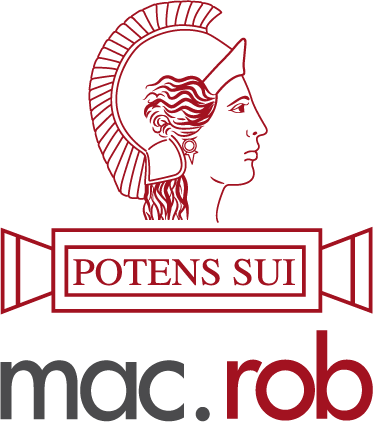Alumni Reflection - Vignesha Vishwanathan and the Ramanujan Museum
Recently I travelled to India where, amongst other things, I visited the Ramanujan Museum. For those who don't know, Srinivasa Ramanujan was one of the greatest mathematicians in history. He was primarily a number theorist, but also made several deep contributions to various other areas of mathematics including analysis, infinite series and continued fractions. In fact, it has been found that independently, he discovered a whooping 3,900 results in his lifetime! Such an output is outstanding, independent of anything else, but it should be noted that Ramanujan's lifetime was tragically short, making this output even more impressive. He died at the age of 32 due to complications from illness.
Alumni, Vignesha Vishwanathan, at the Ramanujan Museum.
Ramanujan spent the first part of his career in a remote town in India so was initially not aware of the state of European mathematics, hence some results of his were already known elsewhere, whilst others were entirely novel and highly unusual. If you have encountered the curious idea that the sum of all the positive integers is actually -1/12, you can say 'thank you' to Ramanujan!
The rest of Ramunujan’s career was spent in Britain, at the invitation of the very prominent mathematicians, G.H Hardy and J.E Littlewood. This resulted in one of the most famous collaborations in mathematics which produced remarkable results. Hardy, upon being asked what his greatest discovery was, responded that it was the 'discovery of Ramanujan'. That says it all, really.
I will now talk a little about Maths. Maths is not about formulas. Maths is not the set of questions in your textbook. Textbook questions are useful to gain dexterity in applying concepts, but they are not your questions. Consider this statement carefully. One asks questions out of a certain curiosity, out of a certain wish to learn something. At the moment, you may not feel this resonate with you. The 'wish to learn' can sound like nonsense. But this wish to learn, this curiosity, is an innate quality that the evolutionary process has gifted the human race with. What is of your choosing, is how you use this gift. The first scientific achievement came when somewhere on the planet, ONE person asked ONE question. This is the power of a question. Not a textbook question, but your question. If you are sincere enough, if your question becomes an activity that is intense enough in you, you will find remarkable answers. This quest in its purest form, is what mathematics is about.
Numbers can be mysterious in their own ways - consider this: take any positive integer. If it is even, divide it by 2. If it is odd, multiply by 3 and then add 1. Keep repeating this process with the result. Conjecture is that regardless of which positive integer you choose, the sequence will reach 1. It has been tested and shown empirically to be correct for everything up to 2 to the power of 68. But computing power is so far insufficient to go beyond this number and a proof has not been found yet.
Mathematical logic can produce some great trivia. By the Pigeonhole principle, given that the population of London is greater than the maximum number of hairs that can be on someone's head, it is a fact that at least two Londoners will have exactly the same number of hairs on their head!
When we think of mathematics as a subject, let us not visualise it as a path to a 'study score', let us instead think of what we are doing... and learn for the joy of learning. If something intrigues you, push boundaries with it! Who knows which territory of infinity this might take you to!!
Vignesha Vishwanathan | Mac.Rob Student, Class of 2021
Currently studying Mathematics at the University of Melbourne


